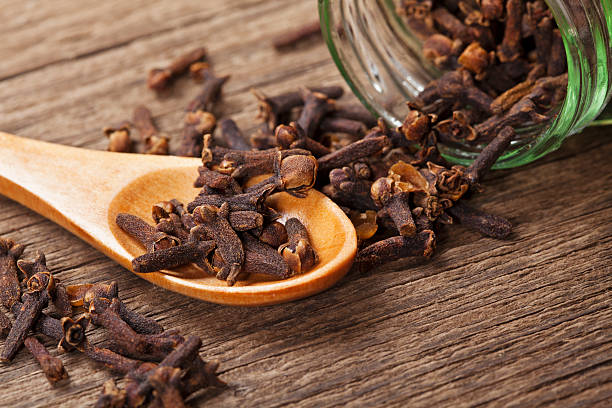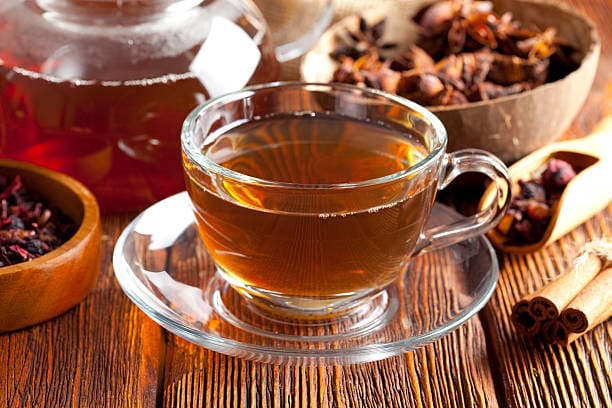Vaginal infections can be uncomfortable, and many women look for natural remedies to find relief.
One remedy that has gained popularity in recent times is clove water.
Cloves are well-known for their use in cooking and traditional medicine, but can they really help with vaginal infections?
In this article, we’ll explore what clove water is, the claims surrounding its ability to cure vaginal infections, and whether there’s any truth to these claims.
Table of Contents
What Is Clove Water?
Cloves are aromatic flower buds commonly used in various cultures for their strong flavor and medicinal properties.
Clove water is made by soaking clove buds in water, allowing the essential oils and active ingredients to infuse into the liquid.
Clove water is often used as a home remedy for various health issues, including digestive problems, dental pain, and even infections.
The main component in cloves that is believed to have medicinal benefits is eugenol. Eugenol is a powerful compound with antimicrobial, antifungal, and anti-inflammatory properties.
Because of this, some people believe that clove water may help fight infections, including vaginal infections.
Understanding Vaginal Infections
Before diving into whether clove water can cure vaginal infections, it’s essential to understand what these infections are and how they occur.
The most common types of vaginal infections include:
- Yeast Infections: Caused by an overgrowth of Candida yeast, these infections lead to itching, irritation, and abnormal discharge.
- Bacterial Vaginosis: This occurs when there’s an imbalance in the natural bacteria in the vagina. Symptoms include a fishy odor, thin discharge, and irritation.
- Trichomoniasis: A sexually transmitted infection caused by a parasite, leading to itching, burning, and a foul-smelling discharge.
While these infections can be uncomfortable, they are usually treatable with over-the-counter or prescription medications.
However, many women prefer natural remedies like clove water to avoid chemicals or for additional relief.
Clove Water and Vaginal Infections: What’s the Connection?
The idea that clove water can cure vaginal infections is primarily based on cloves’ antimicrobial properties. Eugenol, the active compound in cloves, has been shown in some studies to have antifungal and antibacterial effects.
In theory, using clove water could help kill the bacteria or yeast that cause vaginal infections.

Can Clove Water Cure Vaginal Infections?
While clove water has shown some promise in terms of antimicrobial properties, there isn’t enough scientific evidence to support its use as a definitive cure for vaginal infections. Here’s why:
- Lack of Research: Most studies on cloves and eugenol focus on their effects in labs, not on humans. There is limited research on whether clove water specifically can treat vaginal infections effectively in real-life scenarios.
- Dilution of Clove Water: Clove water is not as concentrated as clove oil or extracts. The eugenol content may be too low to provide the same benefits seen in studies that use more potent forms of clove.
- Risk of Irritation: Using clove water internally, particularly in sensitive areas like the vagina, can lead to irritation or allergic reactions in some people. Cloves are quite potent, and using them improperly could cause more harm than good.
- Potential Interference with Treatment: If you’re already undergoing treatment for a vaginal infection, using clove water might interfere with or delay the effectiveness of prescribed medications.
Natural Remedies vs. Medical Treatment
While natural remedies like clove water can be appealing, it’s essential to approach them with caution.
Vaginal infections are common and treatable, but using unproven remedies in place of medical treatment can prolong discomfort or even worsen the infection.
Medical treatments for vaginal infections are widely available, safe, and effective. Yeast infections, for example, can be treated with over-the-counter antifungal creams or tablets.
Bacterial vaginosis usually requires antibiotics prescribed by a doctor. For sexually transmitted infections like trichomoniasis, prescription medication is necessary for complete treatment.
Can Clove Water Help with Symptoms?
Although clove water may not be a cure for vaginal infections, some women may find that it helps soothe certain symptoms. Due to its anti-inflammatory properties, clove water might reduce itching or discomfort when applied externally in diluted form.
However, it’s always a good idea to consult a healthcare professional before trying any home remedies, especially for sensitive areas like the vagina.
How to Use Clove Water Safely
If you’re curious about using clove water, here are some guidelines to do so safely:
- Dilute It Properly: Cloves are powerful, and undiluted clove water can cause irritation. Always make sure the solution is well-diluted before applying it to your skin.
- Do a Patch Test: Before using clove water on any sensitive area, do a patch test on a less sensitive part of your body (like your arm) to check for any allergic reactions.
- Consult a Doctor: If you suspect you have a vaginal infection, it’s best to consult a healthcare professional before trying home remedies. They can help determine the best course of treatment.
Conclusion
While clove water may have some antimicrobial properties, there is no strong evidence to support its use as a cure for vaginal infections.
It may help soothe certain symptoms, but it’s not a substitute for medical treatment.
If you’re experiencing symptoms of a vaginal infection, it’s best to seek advice from a healthcare provider to get the proper diagnosis and treatment.
Natural remedies can sometimes offer additional relief, but they should be used with caution and in conjunction with proven treatments.
Always prioritize your health and consult professionals when dealing with infections or any health concerns.
Photo | pexels
























